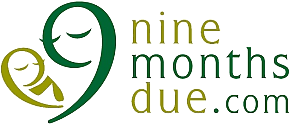Pregnancy is a miraculous and life-changing experience for women, as they embark on a journey of nurturing a new life within them. From conception to birth, this incredible process involves various stages, each crucial for the healthy development of the baby. Prenatal care, pregnancy duration, trimesters, and fetal development are all significant aspects that deserve attention and understanding. In this comprehensive article, we will delve into these topics, exploring the keywords of conception, gestation, trimesters, health, and development.
Conception marks the beginning of pregnancy, occurring when a sperm fertilizes an egg. This union forms a zygote, which then implants itself into the uterus. From this point forward, the gestation period begins, lasting approximately 40 weeks. During this time, the woman’s body undergoes numerous changes to accommodate the growing baby.
Prenatal care plays a vital role in ensuring a healthy pregnancy. Regular visits to healthcare professionals, such as obstetricians and midwives, are essential to monitor the mother’s health and the baby’s development. These visits involve various tests, such as ultrasounds, blood tests, and screenings, to assess both the mother’s and baby’s well-being. Prenatal care also includes advice on nutrition, exercise, and lifestyle modifications to promote a healthy pregnancy.
The pregnancy duration is divided into three trimesters, each lasting around three months. The first trimester is a critical period when the baby’s major organs and body systems begin to form. It is during this time that many women experience common symptoms such as morning sickness, fatigue, and breast tenderness. The second trimester brings relief from some of these symptoms, and the mother starts to feel the baby’s movements. The baby’s growth accelerates, and the mother’s belly starts to visibly expand. The third trimester is characterized by the baby’s rapid growth and the mother’s increasing discomfort as the baby’s weight puts pressure on her organs.
Throughout the pregnancy, fetal development progresses at an astonishing pace. During the first trimester, the fertilized egg develops into an embryo, and by the end of this period, it is considered a fetus. The second trimester witnesses the development of the baby’s facial features, limbs, and organs. By this stage, the baby can hear and respond to external stimuli. In the third trimester, the baby’s brain undergoes significant growth, and it begins to practice breathing movements in preparation for life outside the womb. The baby’s senses become more refined, and it can even recognize its mother’s voice.
Health and development are intertwined throughout the entire pregnancy journey. The mother’s well-being directly impacts the baby’s growth and development. A balanced diet, rich in essential nutrients, is crucial for providing the baby with the necessary building blocks for healthy growth. Regular exercise, under the guidance of healthcare professionals, helps maintain the mother’s physical fitness and prepares her for labor and delivery. Avoiding harmful substances such as alcohol, tobacco, and certain medications is vital to protect the baby’s health.
In conclusion, pregnancy is a remarkable period in a woman’s life, filled with anticipation, joy, and occasional challenges. Understanding the importance of prenatal care, the duration of pregnancy, the trimesters, and fetal development is essential for ensuring a healthy and safe journey for both the mother and the baby. By prioritizing health and development through proper nutrition, exercise, and regular check-ups, women can embrace the miracle of pregnancy with confidence and excitement.
